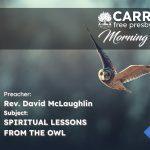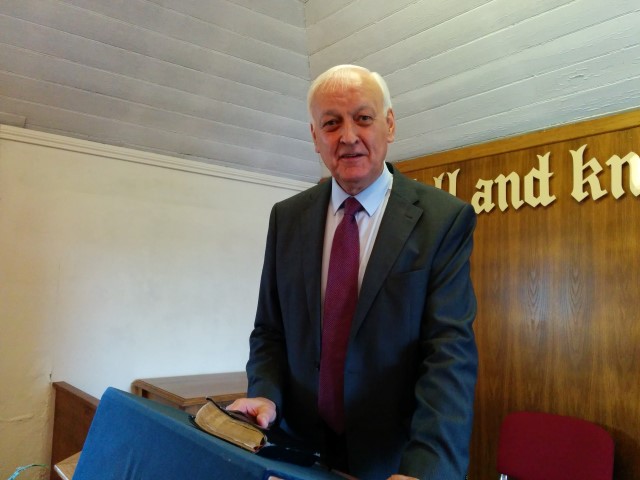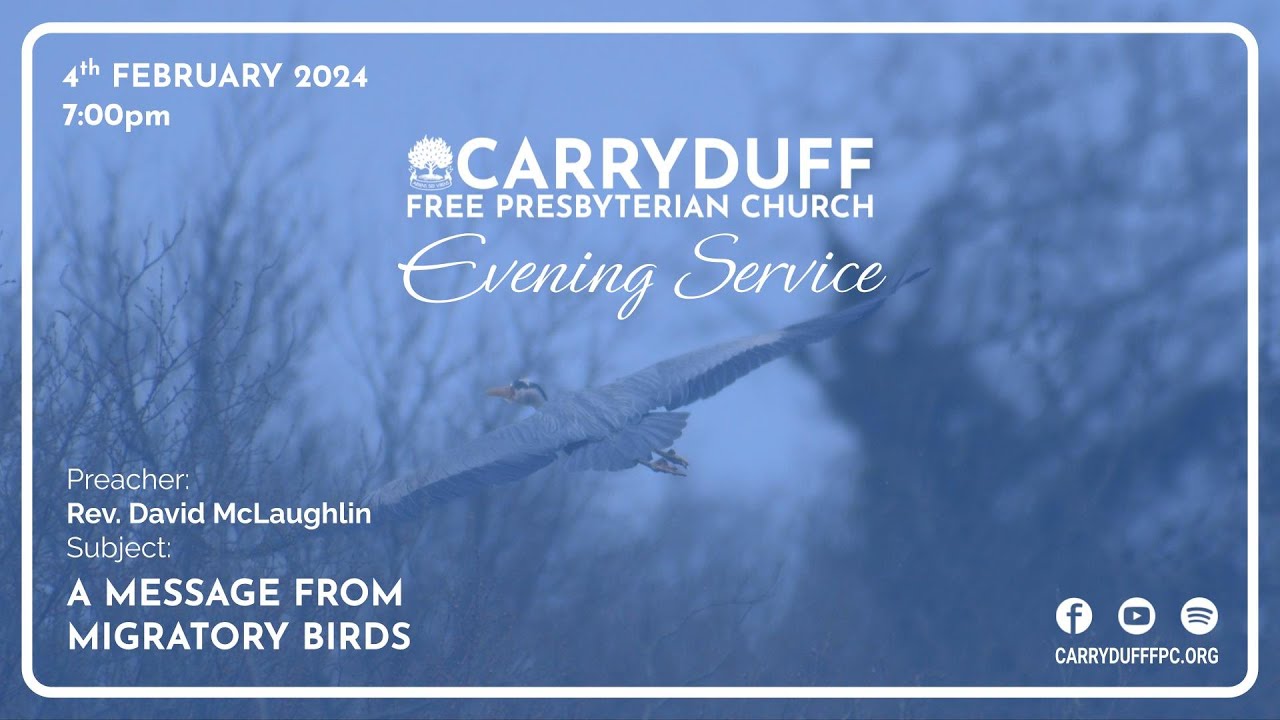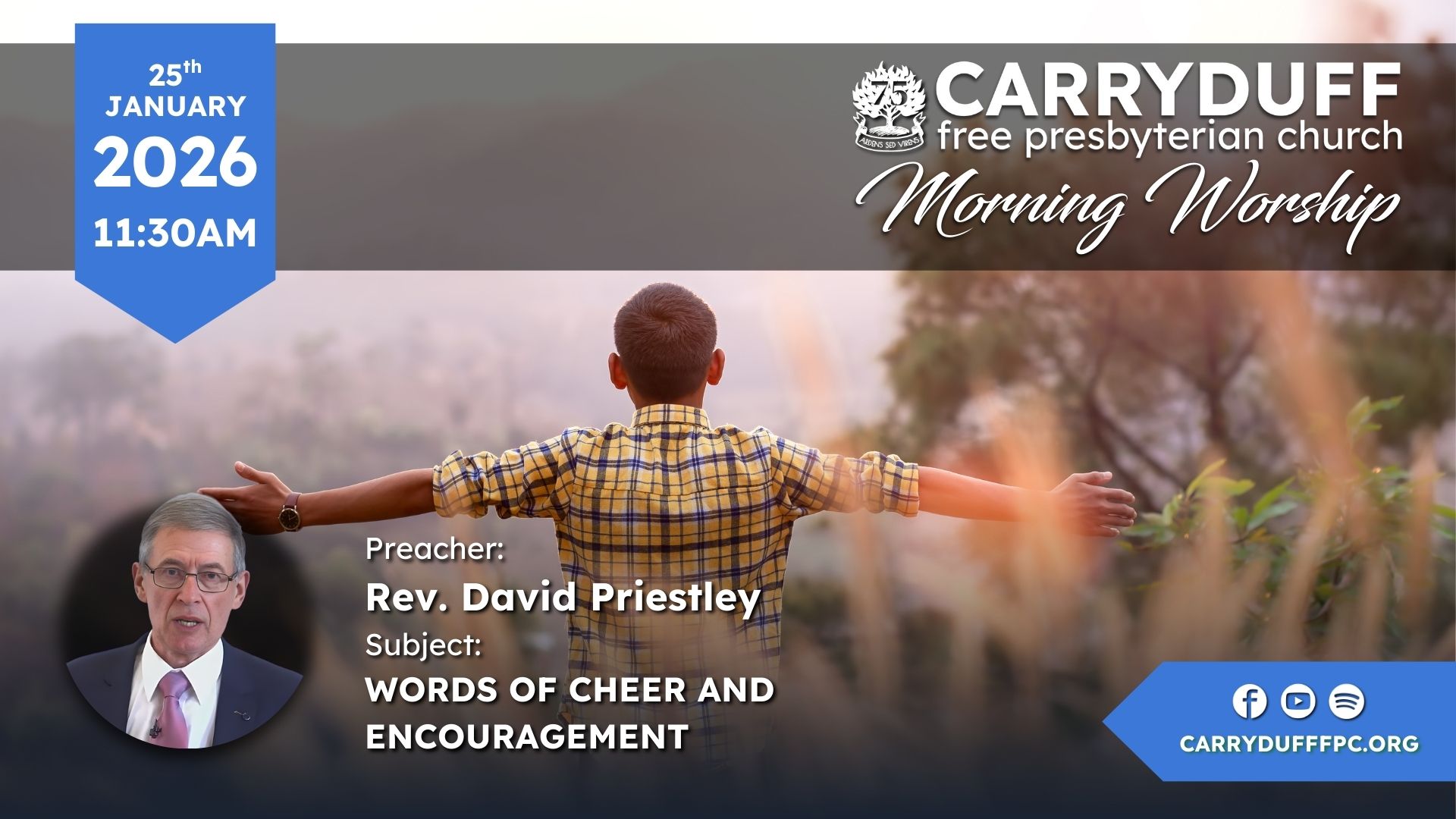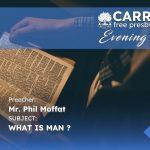Date: SUN 11:30 AM 1st June 2025
Preacher: Rev. David McLaughlin
Bible Reference: Psalms 102:6-7
I am like a pelican of the wilderness:
I am like an owl of the desert.
I watch, and am as a sparrow alone upon the house top.
Sermon Summary
Scripture Reading and Context
The sermon is based on Psalm 102:1-14, with a particular focus on verses 6-7, where the psalmist compares himself to three birds: a pelican of the wilderness, an owl of the desert, and a sparrow alone on the housetop. The sermon, titled “The Bitter and Blessed Lessons of the Birds,” draws from the psalmist’s expressions of affliction, loneliness, and spiritual desolation, likely written by King David during a time of personal distress, possibly while fleeing from Saul or during Absalom’s rebellion. The psalm is described as a “prayer of the afflicted when he is overwhelmed and pours out his complaint before the Lord,” emphasizing the raw honesty of the psalmist’s cry to God in a time of trouble.
Introduction and Inspiration
The preacher begins by sharing a personal anecdote about a recent visit from Dr. Ron Neller of Creation Ministries, a former atheist and scientist who came to faith in Christ after studying landscapes. This encounter led the preacher to an article about the pelican in a Creation magazine, sparking his fascination with the biblical references to the pelican (Leviticus 11:18, Deuteronomy 14:17, Psalm 102:6). The article, “Pondering the Majestic Pelican,” inspired further reflection on Psalm 102, where three birds—pelican, owl, and sparrow—are mentioned, prompting the preacher to explore their symbolic significance in the context of the psalmist’s affliction.
Main Theme: Biblical Ornithology and Spiritual Lessons
The sermon uses the imagery of the three birds to explore the spiritual conditions of affliction, loneliness, and the need for God’s comfort. The preacher organizes the message around three key points: the category, condition, and concern of these birds, drawing parallels to the human experience of spiritual struggle and the hope found in God’s sovereignty and care.
- The Category of the Birds
- Pelican and Owl (Unclean Birds): The pelican and owl are classified as unclean birds according to Leviticus 11:18 and Deuteronomy 14:17, forbidden for consumption under Mosaic law. The preacher suggests that the psalmist, by likening himself to these birds, may be expressing a sense of spiritual uncleanness, possibly due to unconfessed sin or guilt. This imagery is applied to unbelievers, urging them to recognize their sinful state (Romans 3:23, Psalm 51:5) and the need for salvation through Jesus Christ. The preacher emphasizes the universal human condition of falling short of God’s glory and the importance of acknowledging one’s need for a Savior.
- Sparrow (Clean Bird, Out of Place): Unlike the pelican and owl, the sparrow is a clean bird but is described as being alone on the housetop, a place of isolation. The preacher interprets this as a metaphor for believers who feel spiritually out of place, possibly backslidden or disconnected from God. This applies to Christians who profess faith but feel like strangers in the world, facing trials, persecution, or a sense of alienation (Hebrews 13:13). The preacher highlights the backslider’s misery, marked by guilt, loss of appetite, and spiritual unease, but encourages them to return to God, who is faithful to forgive (1 John 1:9, Isaiah 14:1-2).
- The Condition of the Birds
- The birds are depicted as being in unnatural and lonely environments: the pelican in the wilderness (not its natural habitat of water), the owl in the desert (not the forest), and the sparrow alone on the housetop (not with its flock). This reflects the psalmist’s sense of isolation, solitude, and being out of place spiritually. The preacher applies this to modern believers who may feel alone in their faith, whether at home, in the workplace, or in environments hostile to Christianity, such as universities dominated by atheistic worldviews.
- The sermon addresses the emotional and physical toll of loneliness, as seen in the psalmist’s descriptions of forgetting to eat, groaning, and physical wasting (Psalm 102:4-5). The preacher challenges the congregation to consider whether they feel spiritually barren or cut off from God, urging them to recognize these feelings as part of God’s refining process in the “wilderness” of life’s trials.
- The pelican’s behavior of resting its bill on its breast is noted as a symbol of melancholy, debunking a Catholic myth that pelicans bleed to revive their young. The preacher stresses the factual nature of the Creation article, which aligns with biblical truth and avoids superstition.
- The Concern of the Birds
- The sermon emphasizes God’s sovereignty and care for His creation, even in their isolation. The birds, though out of place, are under God’s watchful care, symbolizing His comfort for those in spiritual wilderness. The preacher draws on Psalm 55:22 (“Cast thy burden upon the Lord, and he shall sustain thee”) to encourage believers to bring their burdens to God in prayer, finding peace, protection, and provision.
- The wilderness is portrayed as a place of testing and hardship, as seen in Jesus’ temptation in the wilderness (Matthew 4:1). The preacher encourages believers to trust that God leads them into such places for a purpose, to refine and strengthen their faith. The story of George Matheson, a man who went blind and was abandoned by his fiancée, illustrates how God’s Word can be a cure for loneliness, as Matheson found solace in Scripture and became a gospel preacher.
- The birds also symbolize devotion to their young, prompting the preacher to urge the congregation to care for the next generation, ensuring they carry the torch of faith. The sermon concludes with a call to fellowship, reminding believers that God created them for community, not isolation, and that Christ’s loneliness on the cross (Psalm 22:1) was for their redemption, offering hope and abundant life (John 10:10).
Application and Conclusion
The sermon calls for self-examination, urging unbelievers to acknowledge their sin and need for Christ, backsliders to return to God, and believers to trust in God’s comfort during trials. The preacher uses Charles Spurgeon’s analogy of Psalm 102 as a weather forecast—beginning with affliction (rain and wind) but ending with hope and God’s sustaining grace (a warm sunset). The message closes with a prayer that listeners will experience God’s care, find deliverance from loneliness, and live in fellowship with Christ and one another, trusting in His promises (e.g., “Lo, I am with you always,” Matthew 28:20).
Key Takeaways
- The psalmist’s comparison to the pelican, owl, and sparrow reflects feelings of uncleanness, isolation, and spiritual displacement, resonating with both unbelievers and backslidden believers.
- God uses wilderness experiences to test and refine His people, but He remains sovereign, offering comfort and provision.
- Believers are called to cast their burdens on God, seek fellowship with others, and trust in Christ’s redemptive work to overcome loneliness and find eternal hope.
Subscribe to the podcast here:
Spotify Podcasts | Apple Podcasts | Pocket Casts
Email | RSS | more information here



